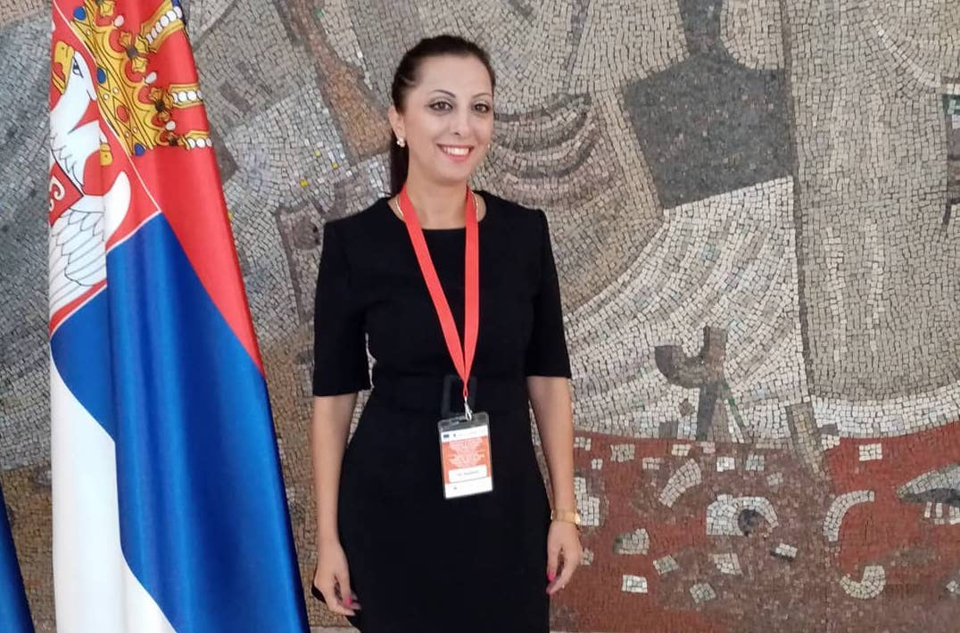In the words of Svetlana Ilic: “Economic reintegration can improve the lives of Roma women, especially survivors of violence”
Date:
Svetlana Ilic is a Roma women’s activist working in BIBIJA Roma Women's Centre, based in Serbia, a partner civil society organization of the UN Women regional programme on ending violence against women in the Western Balkans and Turkey, “Implementing Norms, Changing Minds,” funded by the European Union. For the last 20 years, Ilic has led the organization of hundreds of workshops on Roma women’s rights to education, health, a life without violence and freedom of choice. She spoke to UN Women about why financial independence, education and self-confidence are key to leaving violent situations and are essential for every woman, including Roma women.

My decision to join the BIBIJA team was motivated by my need and desire to personally contribute to improving the situation of Roma communities, particularly the lives of Roma women and girls. Long-lasting injustice has often affected me personally, and I have always wanted to create change.
Since the COVID-19 outbreak, we have all become more aware of the considerable prejudices towards Roma within the majority population, as well as inadequate access to services provided by the institutions within the system. This was visible even before the pandemic, but in this situation, it has become even more striking. Most of the population lives in informal settlements with inadequate living conditions, including lack of access to clean running water and small living spaces, where it is impossible to endure home isolation. As a result, Roma are more vulnerable during this crisis, particularly women and children, especially very young children, pregnant women and new mothers. It is also well-known that in situations of crisis, especially those that include restricted movement, the risk of domestic and gender-based violence increase.
This is why we have established a call centre, where our activists and a lawyer provide information to Roma women and girls in need of support. People who do not have enough credit to call can send an SMS, which we then use to call them back and answer all their questions. Our telephones are available every day between 10.00 and 17.00. Also, when possible, we organize online workshops.
By providing support to women who have experienced violence during the pandemic, we learned that domestic violence has occurred more than usual, as families spend much more time at home together. Also, poverty, exacerbated by the pandemic, has caused more family disputes. In such situations, when violence against women and children increases, we provide support.
In this regard, our upcoming plans in the provision of support to women survivors of violence are to continue providing telephone support, talk to women exposed to violence and conduct workshops in the field, particularly economic reintegration programmes, which are important for Roma women survivors of violence. They provide the only real way out of such a situation, as economic dependence can force women to stay with perpetrators for years and undergo horrible experiences. More than one-third of women stay in violent relationships because they either have nowhere to go or they do not have a livelihood, so financial stability is the main precondition for women survivors to leave violent relationships.
Our economic reintegration programmes will entail free training courses for our beneficiaries. The courses will be chosen by them based on their interests and talents and will include mentorship guidance throughout the entire training. After this, mentors will help them to write their CVs and look for jobs.
We strongly believe that economic reintegration programmes can improve the lives of Roma women, especially survivors of violence, by providing them with independence, education and self-confidence, which are key to leaving violent situations and are essential for every woman, including Roma women.”